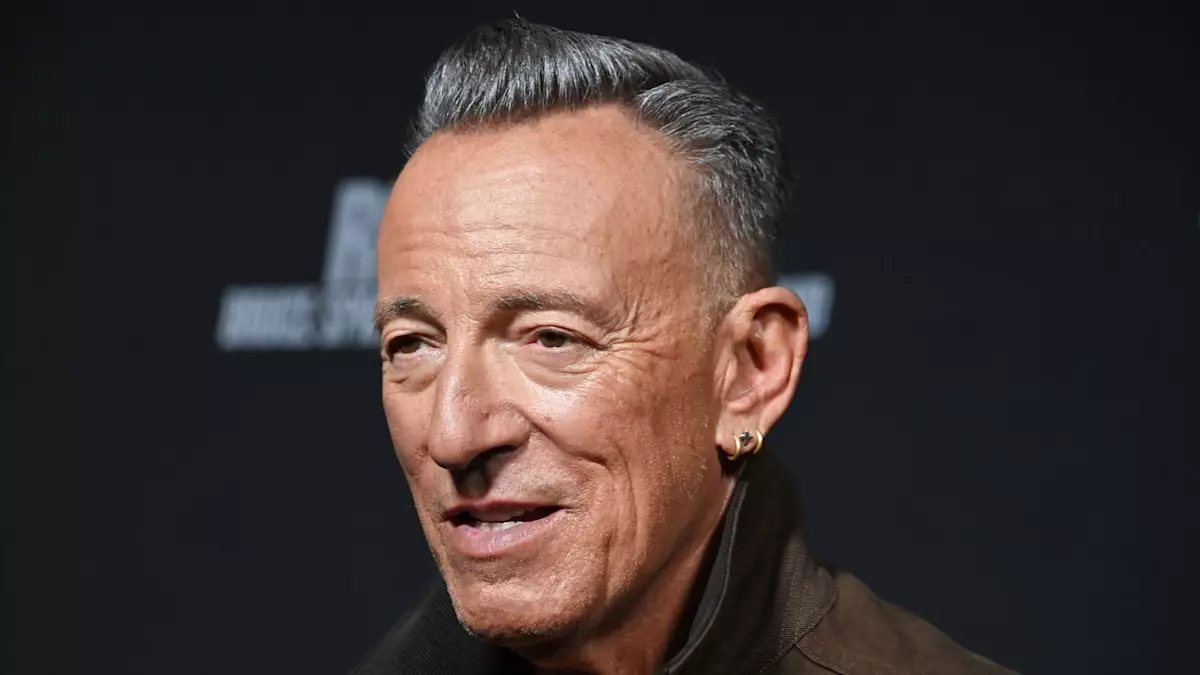In recent days, the tragic passing of former One Direction member Liam Payne has sparked vital conversations surrounding mental health and the often-overwhelming pressures faced by young artists in the music industry. At just 31 years old, Payne’s untimely death following a fall from a hotel balcony highlighted not only the individual struggles artists face but also the larger systemic issues within the industry itself. As legendary musician Bruce Springsteen reflected on this subject, he underscored the alarming reality that fame and success can extract a heavy toll on the mental well-being of young people.
Bruce Springsteen, in a candid interview with *The Telegraph*, articulated the “enormous pressures” that accompany modern fame. He noted that young artists frequently lack the emotional resources necessary to navigate the complexities and challenges that success brings. Such a sentiment turns the spotlight on a pressing issue—the troubling normalization of distress and self-destructive behaviors that can often stem from relentless industry pressures.
Springsteen’s reflection draws attention to the toxic environment that can easily engulf young musicians. He elucidated how the pursuit of success can lead to a loss of self, navigating through the temptations of drugs and alcohol, which many use to alleviate the relentless pressures that come with fame. The question arises: Why does the music industry frequently become a ‘death cult’ for its brightest stars? The answer lies in the industry’s historical tendency to exploit and sensationalize the narratives of artists, often culminating in tragic outcomes.
In wrestling with these burdens, Springsteen shared personal anecdotes about his own band, the E Street Band, and their struggles with substance abuse. His emphasis on “staying out of each other’s business” while being aware of a bandmate’s decline speaks volumes—there is a delicate balance between support and intrusion in such high-stakes environments. This camaraderie is often overshadowed by the spiraling issues of addiction and mental health, commonly encountered in the music industry.
The music business, as Springsteen aptly put it, operates within a larger narrative of exploitation. Young, talented individuals are lured into the industry with promises of fame and fortune, yet many find themselves ensnared in a cycle of emotional neglect and exploitation. When another young star falls victim to the pressures and falls tragically, it raises ethical concerns about the nature of the industry. Springsteen pointedly remarked on how the demise of artists like Jimi Hendrix, Janis Joplin, and Kurt Cobain serves as a cautionary tale for those entering the arena—where the allure of “dying young” can often seem more advantageous to record labels than to the artist themselves.
Mental health and addiction issues are not merely personal challenges but rather reflective of a systemic problem that requires urgent attention. The importance of creating a supportive framework within the music industry cannot be overstated; fostering environments where artists are provided with mental health resources is essential for their well-being.
In the aftermath of Payne’s death, voices from within the industry are advocating for greater awareness and change. Sharon Osbourne’s poignant question, “Where was this industry when you needed them?” resonates widely, fueling discussions about the responsibility of the entertainment world in taking care of its members. Artists like Springsteen, who have experienced the pitfalls of fame, have the potential to lead the charge in changing this narrative.
The conversation surrounding mental health in the music industry must evolve from mere acknowledgment to action. Continuing to shed light on these struggles, sharing personal experiences, and fostering open dialogues can play a crucial role in shifting industry norms. Artists deserve to navigate their careers without the fear of losing themselves or falling victim to the relentless demands of their profession.
As we mourn the loss of gifted individuals like Liam Payne, it is imperative that the music industry as a collective evaluates its role in promoting artists’ mental health. Bruce Springsteen’s candid insights serve as a powerful reminder of the importance of compassion and understanding in a field known for its glamor, yet riddled with profound challenges. By prioritizing mental health, we can ensure that future generations of artists are supported, valued, and allowed to thrive—not merely as commodities but as individuals with their own emotional journeys. The time for change is now.

